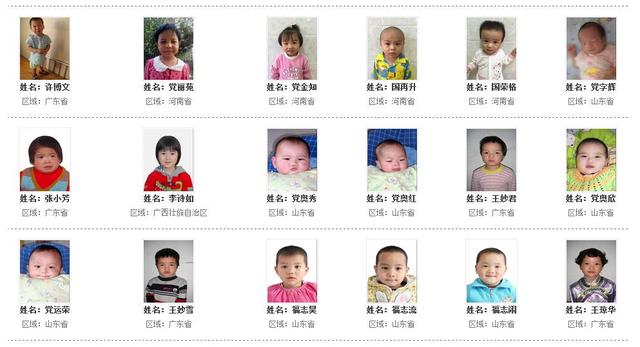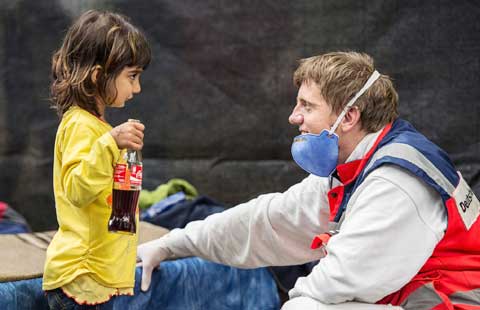National database opens to bring abducted children home
Updated: 2015-09-21 13:30
(chinadaily.com.cn)
|
||||||||
 |
|
Screen capture of the database. |
Chinese authorities have published photos and personal information of 284 children rescued from kidnappers on an online database to help them find their birth parents, Beijing Youth Daily reported Monday.
The database, qgdgxq.mca.gov.cn, went live on Saturday. By 11am Monday morning, the website had attracted 2.28 million visits.
Run by the Ministry of Civil Affairs, it provides information on missing children who have been rescued by the police. The ministry said it will call for all regions in China to log in information about all such children in the database as soon as possible.
A photo and name for every rescued child is in the database, along with information on where they were kidnapped, which social welfare institution is caring for them and how to contact the institution.Visitors can search for children by name, sex, age and other information.
There is no official figure on the number of abducted children in China. A large number are sold to couples unable to conceive or those who want a boy.
Often when police discover a human trafficking ring and locate abducted children, they do not have enough information to locate their birth parents because most smugglers do not keep precise records and the victims are too young to remember.
On Thursday, the ministry, along with the Ministry of Public Security, issued a protocol on how to handle child abduction cases.
Police are required to collect the DNA of parents when a child is reported missing and log it into a national DNA database. Once they rescue an abducted child, police should also collect his or her DNA and check it against the database.
Social welfare institutions, such as an orphanages, are often temporary caregivers to rescued children. They are required to publish information on the database, too.
If it takes longer than 12 months to identify the child's birth parents, the child will be put up for adoption.
If the birth parents find the child after he or she is adopted, and they are deemed fit by the government to raise the child, the adoptive parents should willingly end the adoption, according to the document.
- UN chief: Those blocking fleeing refugees should 'stand in their shoes'
- Hungarian riot police detain migrants
- IOC announces five cities bid for 2024 summer Olympic
- Japan opposition to halt vote on security bills
- Japan protesters rally as security bills near passage
- Australia launches first air strikes against IS

 Obama look-alike lands a movie role
Obama look-alike lands a movie role
 The world in photos: Sept 14-20
The world in photos: Sept 14-20
 Zhejiang's Zhoushan in full swing for sand sculpture festival
Zhejiang's Zhoushan in full swing for sand sculpture festival
 Stars arrive at the 67th Primetime Emmy Awards
Stars arrive at the 67th Primetime Emmy Awards
 Top 15 Chinese CEOs to attend US roundtable during Xi's visit
Top 15 Chinese CEOs to attend US roundtable during Xi's visit
 Across America over the week (Sept 12-18)
Across America over the week (Sept 12-18)
 House showcasing Sino-American friendship open
House showcasing Sino-American friendship open
 Top 10 M&A deals between China and US in 2015
Top 10 M&A deals between China and US in 2015
Most Viewed
Editor's Picks

|

|

|

|

|

|
Today's Top News
Young people from US look forward to Xi's state visit: Survey
US to accept more refugees than planned
Li calls on State-owned firms to tap more global markets
Apple's iOS App Store suffers first major attack
Japan enacts new security laws to overturn postwar pacifism
Court catalogs schools' violent crimes
'Beauty of Beijing's alleys akin to a wise, old person'
China makes progress fighting domestic, international cyber crime
US Weekly

|

|







